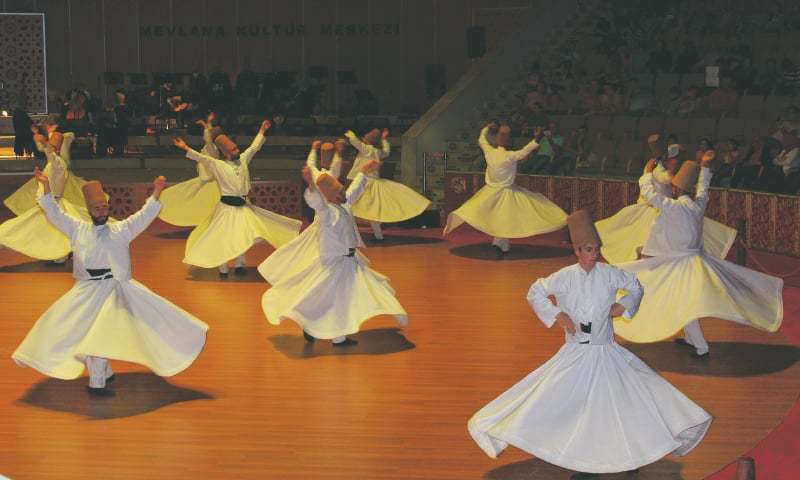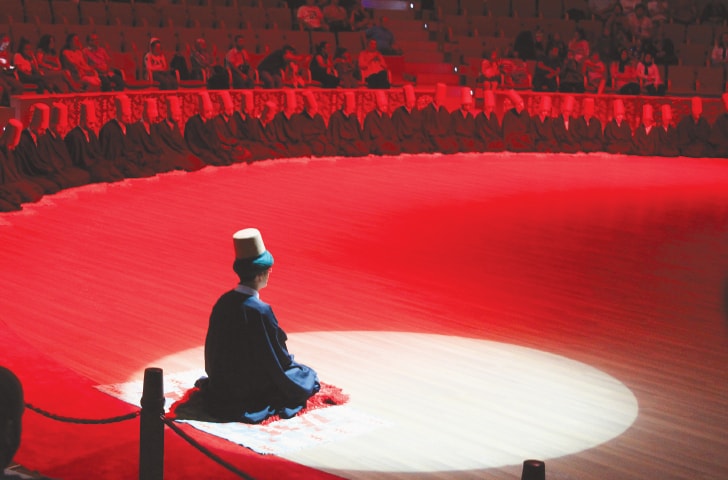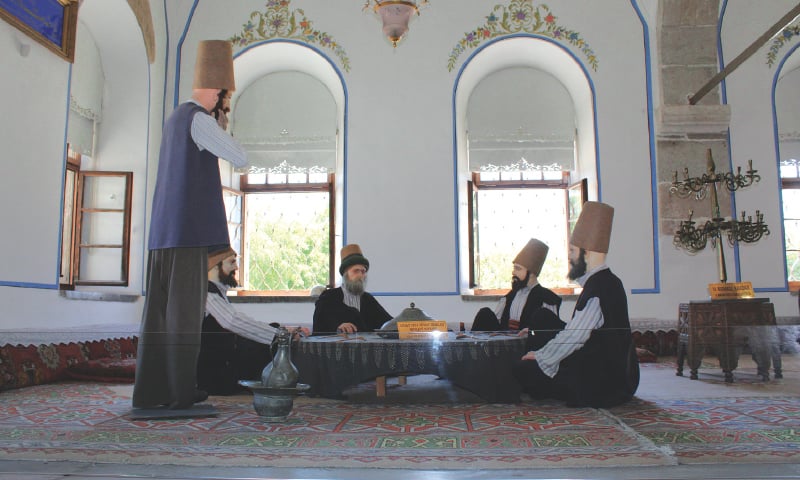
There are many versions of the mythical first come upon among Maulana Jalaluddin Rumi and his spiritual mentor Shams of Tabriz. maximum describe the instant as Rumi, the religious student, sitting with the aid of a pond, immersed in his scholarly studying, when Shams, a stranger to him, comes by means of and asks him what he's doing. “you'll now not understand,” Rumi is reported to have spoke back, upon which Shams throws all of Rumi’s books in the pond. however the books spring lower back up dry, defying the laws of physics. At this factor, Shams is said to have stated, “however you do no longer recognize.”
This was the instant, then, while Rumi began fathoming Allah not just with the mind but also with the heart. In a international of sharp binaries, Rumi’s admirers seem bent upon setting apart Rumi the person of knowledge, from Rumi the mystic poet. In reality, the 2 aren't at the same time distinct; in reality, each are the identical man or woman.
As i lately travelled by way of bus in Turkey from Antalya to Konya, the town of the 13th-century Sufi scholar, its unusual and diverse panorama jogged my memory of his message this is so universally appealing — to the wealthy and the negative, the pious and the sinner, the student and the unlettered. at the same time as the pluralism in his message is prominent, one element becomes clearer than ever when you go to Konya — that Rumi changed into now not only a Sufi, he turned into also a Muslim pupil, and taking that away from Rumi is telling half of the reality.
Maulana Jalaludin Rumi’s Islamic scholarship is regularly forgotten by the ones extolling the universality of his message although it is an essential part of his work
Konya has wonderful old-global charm. The human beings are kind and the roses are ample. however the spotlight of a visit to Konya is the Mevlevi Sema, a mystic spiritual ceremony practiced by using dervishes, who emulate the whirling of Rumi, misplaced in ecstasy. it's far a fascinating revel in, the type that leaves you with goose bumps. within the courtyard of the Mevlâna Museum that houses Rumi’s shrine, a common sight is a teacher with a flowing beard, a rosary in hand and a smile on his lips, sitting below the coloration of a tree, surrounded by means of college students mastering about Islam. Calligraphy from Quranic verses are put up alongside verses from his massive, famous poem, Masnavi. The sound of the azaan is loud and clear in Konya. Imprints of traditional Islam in the district in which Rumi rests do not seem to disagree with imprints of Sufism.

The exterior view of the Mevlana Museum
there is an honorary grave of the Poet of the East, Allama Iqbal, close to Rumi’s grave. Iqbal is often called a spiritual protégé of Rumi, and is stated to have had a metaphysical experience when he felt Rumi’s presence.
In his e book Stray Reflections: The non-public notebook of Muhammad Iqbal, Allama Iqbal observes that “To provide an explanation for the inner most truths of lifestyles inside the shape of homely parables requires extremely good genius. Shakespeare, Maulana Rum (Jalaluddin) and Jesus Christ are possibly the most effective illustrations of this uncommon sort of genius.”
The famous interpretation of Rumi does not do justice to wherein he came from. Rumi is a mystic all proper, however he's extra than simply mystic pulp fiction, and the Masnavi is extra than just couplets that may be used to appease the after-consequences of a fanatics’ brawl. but, few of these smitten via the universality of Rumi’s poetry realize the visible imprints of verses of the Quran. The popular reductionist method toward Rumi has reduced his poetry to memes, and selected couplets with aphorisms which can be easy to quote.

The Mevlevis greet each other as the Sema begins
“Modernity has an allergy to religion. They have pushed religion into a private space, saying ‘religion is just between man and God’ and not collective,” says Abbas Husain, educationist and Islamic scholar known for teaching the nuances of Tasawwuf and Ishq. In Husain’s opinion, a fine parallel can be drawn between Rumi and the likes of Socrates and Plato. “The latter two were religious but have been reduced to being just philosophers. Rumi and his poetry have been exoticised, and there has been an erasure of the religious in him.”
There is religion and there is religion, he says, and to Husain, the distinction is clear. “Religion puts before us deeper questions like ‘why are you here’, whereas religion also is focused more on rituals and minor details. We can’t see the wood for the trees,” he says.
The pull of Rumi is that his words are relatable. “He strikes a resonance with the inward level of man in any era,” says Husain. Scholars have pondered on the various meanings of his work since long. “Rumi is not new; he has been around. The first translation of Rumi’s Masnavi came from R.A. Nicholson, between 1925 and 1940.”

A teacher imparts spiritual wisdom to youth, under a tree near Mevlana Rumi’s sarcophagus
But there is no denying that Rumi has been re-popularised. And his fandom is not limited to Muslims, because his message was and is universal. “I love that Rumi sees Divine beauty in all aspects of creation and speaks to people of all cultural tastes and perspectives. I love that he uses bawdy tales in his poetry,” says Laury Silvers, a lecturer at the University of Toronto’s Department for the Study of Religion.
According to Silvers, Rumi explains the most difficult of concepts by translating them into easily understood simpler concepts that help everyone own him. “Early on when Rumi was translated into English, these parts were translated into Latin so that only the most elite, scholarly fellows could enjoy them — exactly the opposite of Rumi’s intention in composing these verses,” she says.
Silvers further explains how these bawdy tales not only bring Divine truths to those who are best reached with rough and tumble talk. “They teach all of us that God is fully present and calling to us in every moment and through all things, not just that which we deem socially acceptable or ‘pretty’.”

A depiction of the members of the Mevlevi order inside the Mevlana Museum
For a few today, their first exposure to Rumi has been thru the Turkish author Elif Shafak’s book forty policies of affection. In a sense, Shafak did a carrier by means of generating an clean model of the regularly complex themes of Tasawwuf for her readers. even though Husain sees this as high-quality, he recommends graduating to books together with Me and Rumi: The Autobiography of Shams-i-Tabrizi through William C. Chittick for those interested in know-how Rumi higher.
whether or not represented in a complex or an smooth way, Rumi remains the bridge we need these days — he bridges the gaps polarisation has created. folks who grasp to the greater cozy and less stressful interpretation of the religious route of love for God and those who preserve directly to the route of adherence to Islamic jurisprudence or Sharia as the street to Paradise — both can discover something to manual them. In a world torn apart by extremes, Rumi’s message of affection of God can be a meeting-factor.
“Rumi invites us to become whole,” says Husain. “But to become whole, we would first have to accept that we are incomplete.”
Hi! I am a robot. I just upvoted you! I found similar content that readers might be interested in:
https://www.dawn.com/news/1358182
Downvoting a post can decrease pending rewards and make it less visible. Common reasons:
Submit
It is the quality of our work which will please God and not the quantity.
- Mahatma Gandhi
Downvoting a post can decrease pending rewards and make it less visible. Common reasons:
Submit
Congratulations @xevensolution! You have received a personal award!
Click on the badge to view your Board of Honor.
Do not miss the last post from @steemitboard:
SteemitBoard World Cup Contest - The results, the winners and the prizes
Downvoting a post can decrease pending rewards and make it less visible. Common reasons:
Submit
Congratulations @xevensolution! You received a personal award!
You can view your badges on your Steem Board and compare to others on the Steem Ranking
Vote for @Steemitboard as a witness to get one more award and increased upvotes!
Downvoting a post can decrease pending rewards and make it less visible. Common reasons:
Submit